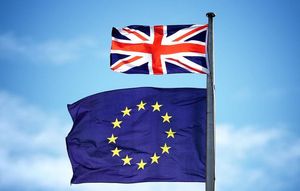Why Brexit case is irrational and nasty
‘Making this country of ours great again’ begs so many questions that it could provide an exercise in discourse analysis.

M Gough (letter 27 Jan) charmingly calls me a liar – that’s what ‘economy with the truth’ means – and then blithely invites me to join him in ‘making this country of ours great again’.
Simple facts – the UK did vote to remain in what was then called the EEC; subsequent changes to its name and scope where all the subject of treaties to which this country was a party.
In the case of the enlargement to include countries of the former eastern bloc – most significantly Poland – the UK was a leading mover, contrary to the scepticism of some other then existing members, and the UK was one of only three countries to allow immediate freedom of movement to the citizens of those countries upon accession.
It is, at least, a refreshing change to see someone actually engage with the arguments.
I – a natural supporter of ‘Lexit’ (exit to the left) and a voter for Dave Nellist’s anti-EU list in the last European Parliament election – voted remain with reluctance, as the lesser of two evils.
Subsequent letters to the Express and Star met with a torrid response to so uncontroversial and tepid a political stance.
Brexiteers’ cages were rattled, it seems, by two things: I referred to the established, and strictly apolitical, fact that the strongest demographic correlation in the referendum was between level of education and voting, with more highly educated people voting remain (75 percent of Ph.D, and masters graduates).
The other, even more bizarrely, was that of professional offence-takers getting hot under the collar at my following the standard academic convention of citing authors by surname.
So, why did I vote remain?
First, ‘Lexit’ is not on the table.
Dennis Skinner will not be in Downing Street, free from EU interference, renationalising the railways without compensation on March 30 next year.
Secondly – and I fear there’s no way of saying this kindly – the arguments advanced by Brexit fans on the letters page were so irrational and often so downright nasty that I couldn’t possibly go with them.
M Gough’s own ‘making this country of ours great again’ begs so many questions that it could provide an exercise in discourse analysis.
Who are the ‘we’ whom he believes to own the country? When was it ‘great’? In what did the ‘greatness’ consist?
Then there is his rote repetition of ‘faceless unelected Brussels bureaucrats’. Why does he believe them to lack a face?
Why does he use the pejorative ‘bureaucrats’, rather than ‘officials’ or ‘civil servants’?
Since civil servants are required to be non-political, as they are in this country, why does he object to their being appointed, rather than elected?
The politicians are the directly-elected MEPs and the commissioners appointed by national governments, not the unjustly maligned ‘bureaucrats’.
If he borrowed a book from the Bilston branch of Wolverhampton city libraries, I don’t think he would rudely call the librarians ‘faceless unelected Bilston bureaucrats’.
Alan T Harrison
Walsall





